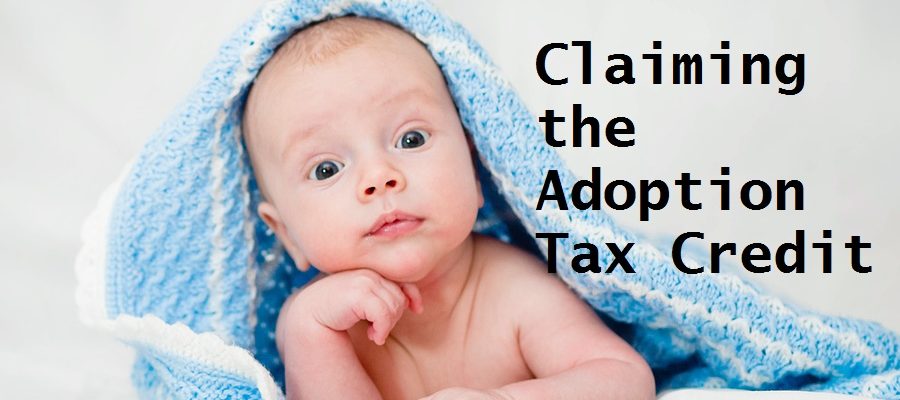If you adopt a child, you may be eligible to claim an adoption tax credit. A tax credit is much better than a tax deduction because it’s a dollar for dollar reduction in the amount of tax liability. For 2021 the maximum adoption tax credit per child is $14,440 – that’s a pretty significant amount!
What expenses qualify for the adoption tax credit?
Generally, the adoption tax credit is a reimbursement for reasonable and necessary expenses for an adoption. For example:
- Court costs
- Attorney fees
- Agency fees
- Travel expenses (which includes meals and lodging while away from home)
- Other expenses directly related to, and for the principal purpose of, the legal adoption of an eligible child
And there may be other expenses that are required by the state as a condition of the adoption, those would count as well. An example used on one of the adoption websites was putting a fence around a swimming pool before a child could be placed in the home, that would be a qualified adoption expense because there would be no adoption without the fence.
What expenses do not qualify for the adoption tax credit?
- Any expenses paid for the adoption of a spouse’s child
- Surrogacy expenses
- Any adoption expenses that are reimbursed by your employer
When can I claim the tax credit?
Like many of tax questions I see, the answer is: it depends. You see, the answer is different for U.S. and foreign adoptions.
With a U.S. adoption, qualified expenses that are paid are deducted in the next tax year, even if the adoption is never finalized. For example: let’s say you paid $2,000 to an attorney for an adoption in 2020. In 2021, it all falls through and you never get to claim the child. You still get to claim the $2,000 for the adoption tax credit.
With a foreign adoption, qualified expenses that are paid in the years before and during the year the adoption is finalized are all claimed in the year the adoption is final. If a foreign adoption is never finalized, the adoption tax credit is never claimed.
If you have additional adoption expenses that are paid after an adoption is final, they are claimed in the year they are paid.
What about special needs adoptions?
If the state determines that an adoption is “special needs,” then generally you’re eligible to claim the maximum tax credit in the year the adoption is finalized, even if you did not spend that amount. What we normally think of when you say “special needs” is a child with a disability, but that’s not necessarily the case when dealing with the adoption tax credit. For purposes of the adoption tax credit, special needs is:
- the child must be a US citizen or US resident when the adoption process begins
- the state determines that a child cannot or should not be returned to his or her parent’s home
- the state determines that the child probably won’t be adoptable without assistance provided to the adoptive family
So this is a little tricky. Even though we’re talking about a federal tax credit, it’s the state that determines if an adoption is a special needs adoption or not. Make sure that if you’re claiming a special needs adoption that you’ve got the state documentation to back it up.
What if the adoption tax credit is more than my tax liability?
The adoption tax credit is non-refundable. That means that if your tax credit is $14,440 but your tax liability is only $10,000, you’re not going to get the extra $4,440 back as a refund. But the good news is, you do get to carry the extra forward to offset your taxes for up to 5 years.
Are there any other limits to the adoption tax credit?
There are a few. Probably the most important is the income limitation. In 2021, the adoption tax credit starts to phase out at $216,660. By the time your income reaches $256,660, you’ll receive no credit at all.
Married couples who file separately can’t claim the adoption tax credit either. This can be especially tricky for couples who had expenses in earlier years but filed separately, then file jointly to claim the adoption tax credit.
There’s no double dipping. If your employer pays you $5,000 for adoption expenses, you have to exclude that from the qualified adoption expenses that you actually claim.
How do I claim the credit?
The form you need is form 8839. In the old days, you needed to submit written documentation when claiming an adoption tax credit and mail it in with your tax return. But now, the IRS requests that you e-file your tax return instead. You may be asked to provide written documentation later, so do hang onto your adoption paperwork just in case you need it.
The IRS has a great little tool on it’s website to help you determine if you can claim the adoption tax credit. It takes about 15 minutes to run through completely, but if you have any doubts about whether you can claim the credit this year or not, it’s going to tell you. Here’s the link: Can I claim the adoption tax credit?

